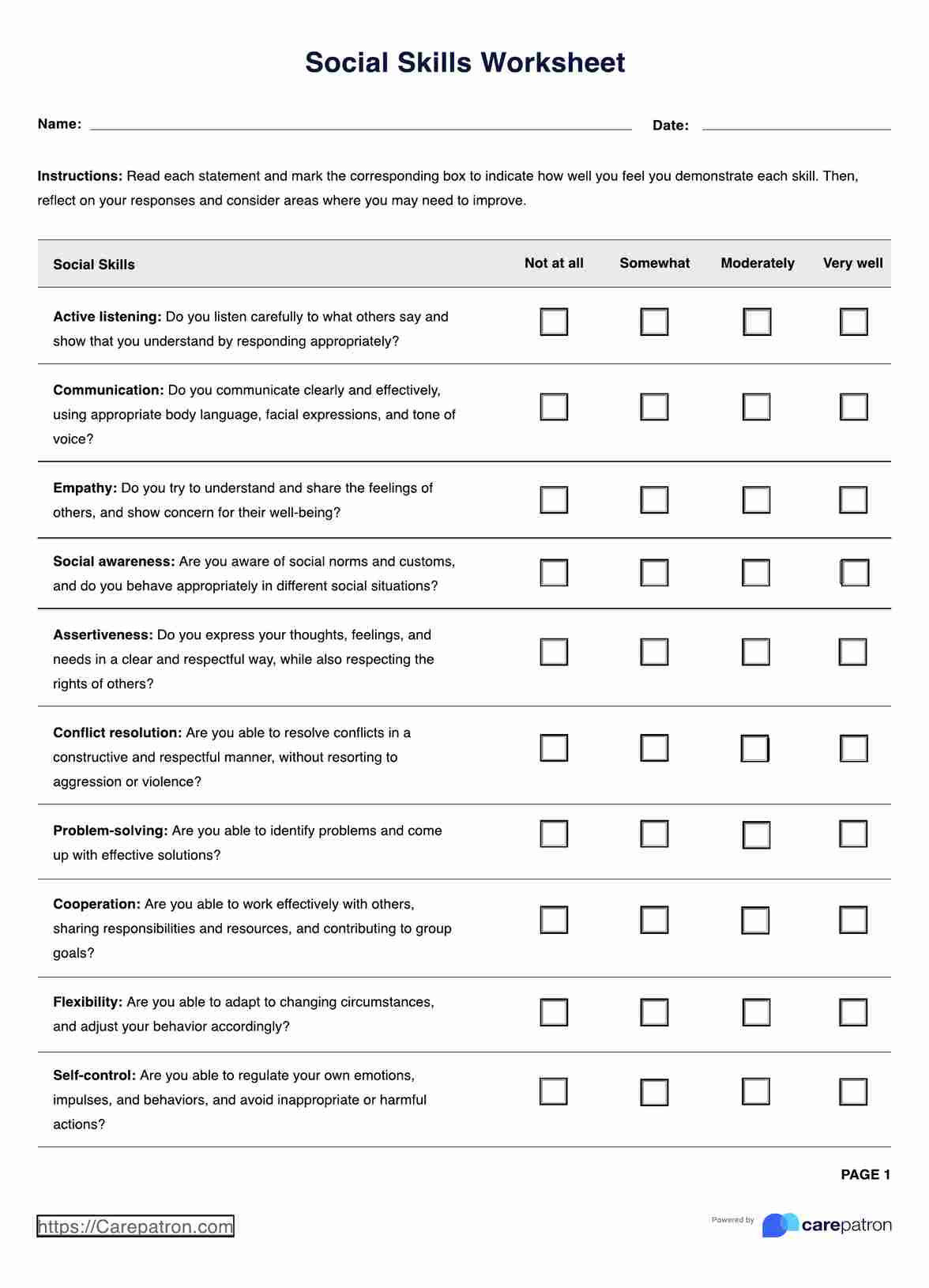Download the printable PDF and follow the instructions for the Social Skills Worksheet. Read each statement, mark your level of proficiency, and use the reflections section to identify areas for improvement.

Social Skills Worksheet
Identify your client's social skills strengths and weaknesses with this Social Skills Worksheet. Download a free PDF and example to get started.
Social Skills Worksheet Template
Commonly asked questions
The Social Skills Worksheet is a practical tool for developing and enhancing interpersonal abilities. It guides users through self-reflection on critical social skills, such as active listening, communication, and empathy. This fosters improvement in verbal and nonverbal communication and facilitates better interactions in various social situations.
Social Skills Worksheets can be administered in various contexts, including educational settings, therapy sessions, or personal development initiatives. They are especially beneficial when individuals want to address challenges in social interactions, build confidence, or enhance their ability to navigate diverse social situations effectively.
EHR and practice management software
Get started for free
*No credit card required
Free
$0/usd
Unlimited clients
Telehealth
1GB of storage
Client portal text
Automated billing and online payments











